Emma, Utah, You, and Me
Pirates! One of your faithful librarian got laid off last Thursday, so you will probably be hearing more from me, as I try to fill the hours and days of my funemployment with something other than trying to get hired somewhere that will let me poke around in their old books & papers.
Anyway, for the last 34 years, Candace Falk, at UC Berkeley, has been working on the Emma Goldman Papers. She has amassed a rather large collection of papers, “the most comprehensive, organized collection of Goldman-related materials in the world,” and is near to publishing the fourth volume on Goldman’s American years. Archivists and anarchists everywhere, rejoice!
Ah, but not so fast. “The university has informed the project’s editor and director, Candace Falk, that her employment will terminate at the end of October due to lack of funding.” Oh, that’s something many of us are quite familiar with — out of funding & out the door. And whether you believe the university’s line about tough choices or whatever, the result is the same: further work on the collection will likely grind to a halt for lack of funding. Additional published volumes, digitization, and whatever else maybe have been planned or imagined for it will probably not happen. The collection is not even housed at the university proper — “the project pays its own $1,700 monthly rent plus utilities for an office adjacent to campus,” so who’s to say what will happen to the physicality of it and the accessibility thereof. Falk says she “has no plan B.”
We intellectual proletarians, to reference a piece Goldman wrote in 1914, remain just as subject to the whims of capital as our brethren and sistren who work at physical labor. As Utah says, quoting Frank Cedervall, “You got a boss, you’re working for wages, you’re in the working class and you better be proud of it. Why, the middle class is just a joke made up by the bosses to keep us fighting against one another.”
Stay with me for a moment, here, as I ruminate on Utah Phillips. I first became familiar with him as a child; my parents would play his records, and my parents’ friends, Lee and Kate, would play and sing his songs at backyard parties. In particular, I have a very sharp memory of listening to them sing “Queen of the Rails” when I couldn’t have been more than four. But my parents seemed to mostly listen to his songs about trains or Charlie Goodnight. Almost two decades later, a college housemate, named after Emma Goldman, had a CD that we kept on heavy rotation, which was also mostly railroads and cowboys. Somewhere along the way, I got to listening to the stuff he did with Ani Difranco, I think after I went searching for any copy of any version of “Queen of the Rails” that wasn’t trapped on vinyl.
Utah sang about trains and cowboys, and also about direct action and anarchy and the IWW and free speech, it turns out. The common thread through almost all his songs and stories is history. He sings songs that might only be otherwise found in the Little Red Songbook or be lost to the sands of time. He reminds us of Mother Jones and Lucy Parsons and Frank Cedervall and Joe Hill and Bill Haywood and Herb Edwards and Ammon Hennacy. We hear about the Spokane free speech fight and the Lawrence textile strike and the Ludlow miners strike and the Everett massacre. I wouldn’t know the words to half a dozen songs from a century ago, if Utah hadn’t sung them.
History goes on like that, or it doesn’t. Especially for history outside the mainstream narrative, we are always at risk of forgetting. If the powers that be, capital and state, or patriarchy, or compulsory heterosexuality, or white supremacy, want us to learn a particular story, we must seek very hard to find a narrative outside of that story, or one that contradicts it. Did you know that Helen Keller was a socialist? Probably not, and if you did that tidbit probably came to you later.
We are therefore charged with two things. One is to seek out our history, and the other is to preserve our history. Hence, we need archives, and we need archivists in them. And we need, at this economic & political juncture, the funds for them, because that’s how they continue to exist. Some archives get that through government funding, be it the town historical society or NARA; some get it through university funding; some are held privately; some, such as the Lesbian Herstory Archives or the Kate Sharpley Library, appeal directly to their particular constituents. Since money is power, we have a conundrum, then, if we go begging money from the powerful, to use in perpetuating the knowledge of histories that power would rather we forget. Because history is a weapon that can be used against them. Emma told us that the intellectual proletariat is still the proletariat, and that they’d be better off the sooner they realized it. The archivists losing funding, and the mightily underpaid adjunct professors, and grad students prevented from unionizing would do well to know it.
[In odd moments, we get power to do things that you think it should be disinterested in doing. The work done by the WPA during the Depression comes to mind, which was responsible for recording the narratives of former slaves, or capturing disappearing folk music, among other things. I can’t quite account for it, but you’ll notice it hasn’t happened again.]
To quote Utah again, “one of the things you have to do in this world is keep track of the people that you owe.” I owe Utah, among others. Once I knew that I could find history in his stories, some of which he’d gotten from the old folks who were alive for those strikes and massacres and free speech fights, I could chase down more information, because I know it was there to be found. I might then quote “Bread and Roses” to interviewers wondering what our demands were, or know that direct action comes highly recommended. I owe Emma, for living a life of sexual freedom a century before I might.
We archivists work to preserve our history, and through that preservation create access to it. And if you can’t pay someone back when you owe them, you might as well pay it forward; I’m an archivist (sometimes), which makes it my responsibility to preserve history for myself, my communities, and for the future. And I wonder, sometimes, when I listen to recordings of Utah spinning stories, if anyone still sings them.


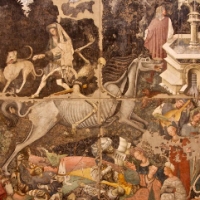
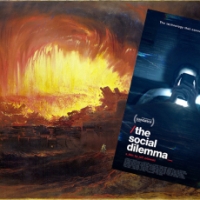
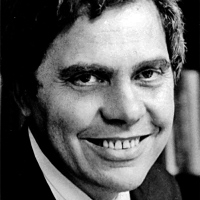
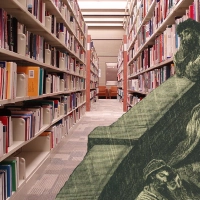

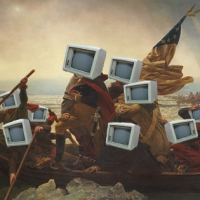

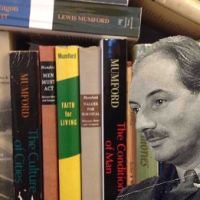

I own that Utah/Ani CD and had some of the same thoughts about history when listening to it…like it should be part of American History classes in high school.
If I read this correctly (I’m rushed at the moment and unable to read this post carefully) you have been laid off from your job. If that’s correct I’m sorry to hear it.
Doug Hill
Thanks. Whether I’m sad about it is yet to be seen.
Hope you find some work at some point.
Pingback: Two Years of Steadily Sinking | LibrarianShipwreck